Andreas Schmidt
Aug. 18, 2024, 5:50 p.m.Ein perfekter Ausflug nach Alexandria! Unser Guide war sehr freundlich und kompetent. Die Graeco-Römischen Sehenswürdigkeiten waren beeindruckend. Besonders genossen habe ich die Bibliotheca Alexandrina. Die gesamte Reise war einfach hervorragend!
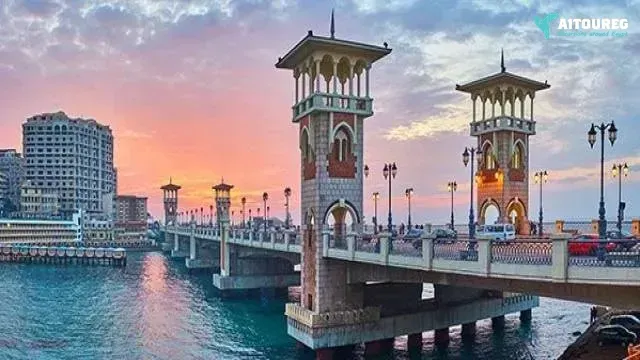
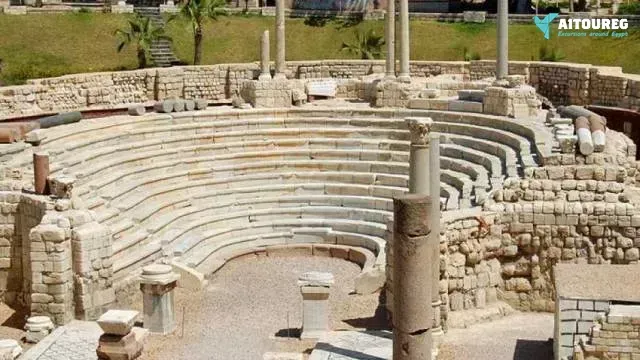
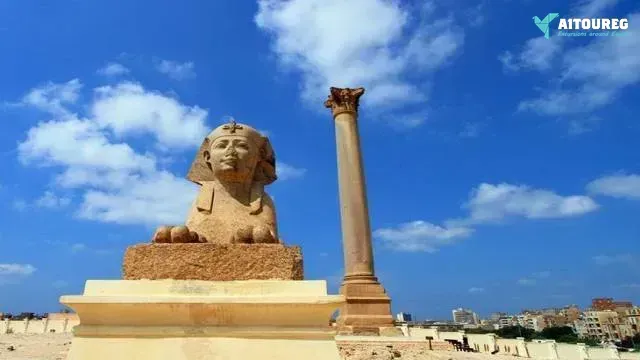
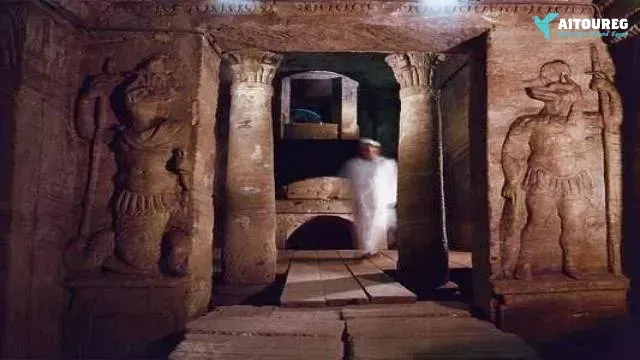
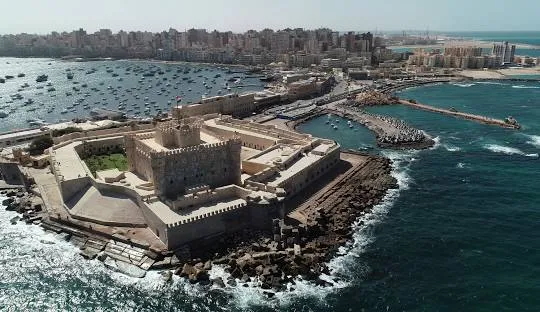
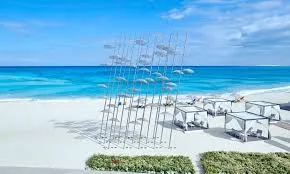
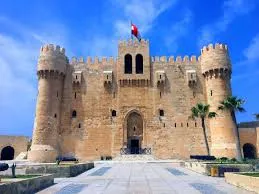
1) Day 1- Cairo- Alexandria
Drive to Alexandria (220 km/ 3 hours driving) to your hotel in central Alexandria facing the Corniche, Afterwards see some of the Graeco-Roman sites in Alexandria including 1- The Catacombs Kom el Shoqafa : The Catacombs Kom el Shoqafa are hewn from the rock on the southern slopes of a hill, in the Carmous district. Thought to date from the 2nd century AD, they offer an admirable example of the characteristic Alexandria n fusion of Egyptian and Greco-Roman styles. Discovered in 1900 (thanks to a donkey falling into them) 2- Pompey pillar : A massive 30m column looms over the debris of the glorious ancient settlement of Rhakotis, the original township from which Alexandria grew. Known as Pompey’s Pillar, for centuries the column, hewn from red Aswan granite, has been one of the city’s prime sights: a single, tapered shaft, 2.7m at its base and capped by a fine Corinthian capital. The column rises out of the sparse ruins of the Temple of Serapeum , a magnificent structure that stood here in ancient times. 3- The Roman Amphitheatre Kom el Dikka : Kom Al Dikka was a well-off residential area in Graeco-Roman times, with lovely villas, bathhouses and a theatre. The area was known at the time as the Park of Pan, a pleasure garden where citizens of Alexandria could indulge in various lazy pursuits. Although the ruins aren't terribly impressive in scale, they remain a superbly preserved ode to the days of the centurion and include the 13 white-marble terraces of the only Roman amphitheatre found in Egypt. 4- Lunch in one of Alexandria Egyptian restaurant /Fish Market or Tikka with Great view to the Citadel and the Fishing Port. 5- El Montazah Palace : El Montazah Palace which Built-in 1892 by Khedive Abbas II, the last Muhammad Ali Dynasty ruler, the palace is a symbol of royalty and lavishness. Its main goal was to hold the Khedive title over the Khedive of Egypt and Sudan and was also used as a hunting lodge and residence for his companion. Thereby, the sheer luxury in the palace is clearly present. The eccentrically designed Montazah Palace, with its ornate Florentine-inspired towers and Rococo flourishes, is not open to the public, but everyone is welcome to stroll within the sprawling gardens, which can be a welcome slice of nature after a day spent within Alexandria 's hustle. On the coastal end of the park is a small beach with a peculiarly whimsical bridge to a small island. For the evening enjoy some of the city's wonderful Cafe and restaurants. we do recommend to stop at Stanley Bridge, This bridge offers great panoramic views of the Mediterranean, Overnight in Alexandria -Paradise Inn - Le Metropole Hotel
2) Day 2- Alexandria -Cairo
After breakfast visit one of the most important archaeological sites in the city 1- Bibliotheca Alexandrina: A re-imagining of Alexandria 's ancient Great Library, this gorgeously designed cultural centre contains a host of museums, as well as one of the modern world's most ambitious libraries. Its architecture — a giant sun disk — presides over the waterfront Corniche, while inside, a huge reading room can hold eight million volumes. Built-in 2002 as a memorial to one of the largest and most important libraries in antiquity, the Royal Library of Alexandria . The old library was burnt down and with the fire, many of its books were destroyed. The modern library may not be as important and rich as the previous one, yet it’s still a large library and a major cultural centre including three museums, four art galleries, a planetary and a laboratory where they rescue and fix old manuscripts. They also have a good section of children’s books which can be fun to explore if you’re on holiday with your kids. the dazzling building, opened in 2002 by UNESCO This massive construction houses three museums ( Antiquities museum, Sadat museum, Manuscript museum). In the afternoon visit 2- The Fort Qaitbey : Fort Qaitbey was built by Mamluke Sultan Qaitbey in an effort to fortify this important Egyptian port from attack. Historically one of the most important defensive strongholds in Egypt and along the Mediterranean Sea coast, the Fort of Qaitbey was an essential chess piece in the security of Alexandria . The fort sits at the entrance of the harbour on the Pharos Island, where it replaced the famous Lighthouse of Alexandria , which was one of the Seven Wonders of the Ancient World. Despite being finally annihilated in a devastating earthquake, remnants of the red brick used in the construction of the lighthouse still remain–a nostalgic reminder of how magnificent it would have looked in its prime time. Nonetheless, the fort is still a sight to feast your eyes on. We recommend strolling to Fort Qaitbey along the Corniche, giving you unforgettable views of the Mediterranean sea. 3- Abu Abbas al-Mursi Mosque:
One of Alexandria 's major landmarks, the Abu Abbas al-Mursi Mosque was built in 1796 over the tomb of the 13th-century Sufi holy man Abu Abbas al-Mursi. Originally from Murcia (in Spain's Andalusia region), Abu Abbas became a highly esteemed religious leader in Alexandria , and his teachings are still revered in Egypt. It was redesigned and built by Eugenio Valzania and Mario Rossi between 1929 and 1945. The temple is certainly one of the most beautiful mosques in Egypt as well as one of the most spiritually significant places to go to while visiting Alexandria . Its traditional architecture is stunning and it is located right next to the Citadel of Qaitba 4- lunch in Egyptian Restaurant/ Hosny restaurant Leaving Alexandria Drive back to Cairo